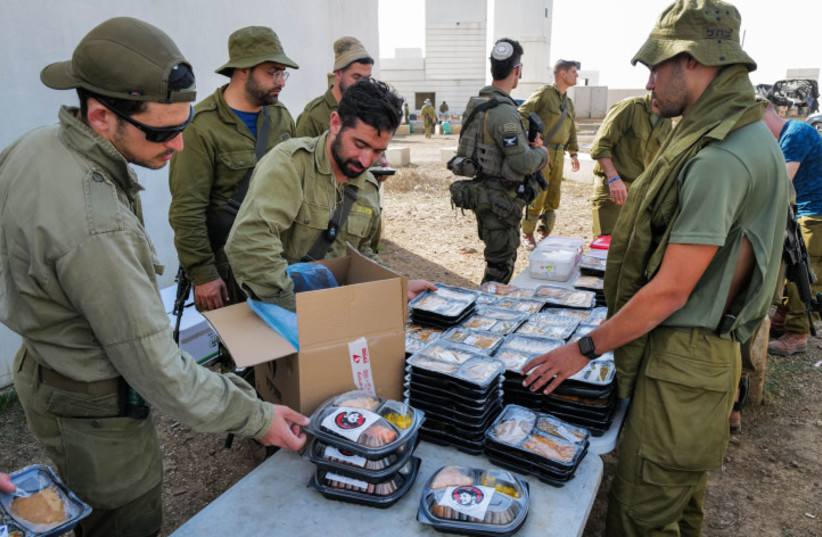Israel is at a crucial moment: the high-intensity part of the war in Gaza is about to end. The IDF has achieved impressive successes, but the objectives of the war have not yet been met.
About half of the hostages have not yet been released; two-thirds of the territory of the Gaza Strip has been occupied, but Hamas has not yet been defeated; the evacuees of the South and the North have not returned to their homes; and the head of the Hezbollah snake has not yet been severed.
Those pulling the strings in Tehran continue their plotting. How should we proceed?
For us to succeed in meeting the military, social, and political challenges piled up on the national table, urgent civic action must be taken: the restoration of the Israeli society’s trust in the country’s leadership. As of today, only 35% of the public trusts the government (while some 75% trust the IDF commanders).
This is a narrow and shaky support base that will make it difficult to take the consequential, Ben-Gurion type of decisions required at this time. The entire political system – both coalition and opposition – must come to their senses and close the trust gap through concrete action.

A national majority on national decisions
First and most important: national decision-making on existential issues should be entrusted to those who represent the Israeli majority, in contrast to the current situation in which ideological extremists hold a practical and effective veto power over the prime minister. The proper way to realize this change is by going to general elections, but this would sabotage Israeli unity.
Confidence in the leadership can be restored, even without elections, in a number of ways: a decision by the prime minister to change the composition of the coalition; a decision by coalition-party Knesset members to force this on him; a decision by opposition parties to join the coalition under conditions that would dilute the power of its extreme elements.
Each of these options requires elected officials to act despite the risk of harming their own personal interests. But this is not an excessive demand: this – and much more than this – is how tens of thousands of Israelis, reservists, who are now returning to their homes, have acted.
Each and every one of the reservists could have turned away and consigned their share of the national burden to the backs of others, but they chose to step up – and paid the personal price. It is not “only” about the courage revealed in battle when the adrenaline is flowing and their lives are actually on the line, but also about their readiness, over time, to place the common good over their personal comfort, the well-being of their family, and their own financial interests.
The grueling day-to-day grind inside the cramped confines of tanks, in heavy wind-blown protective gear and wet socks, out of communication with home – wife, husband, children, parents – and fearing for their livelihood, this is the enemy of heroism. And yet, these reservists turned out to be true heroes over the 120 days that have passed since Simhat Torah.
The pioneering “Palmah Generation,” who founded the state, worried that the hedonistic “Espresso Generation” of the 1960s would not know how to maintain it. The Six Day War came, and later the Yom Kippur War, and proved the resilience of the generation.
The same is true now, twofold: anyone who had a doubt as to whether our young people – seekers of self-fulfillment and mindfulness, individualistic careerists, success and proud in a hi-tech country, liberals for whom the whole world is home – would anoint themselves with tank grease, hunker down in the sands of Shejaia, work their way through booby-trapped tunnels, make do with a weekly shower and battle rations, has received their answer. The “TikTok generation” is here – powerful, determined, ready for any national mission. Israeli society is proving its collective resilience, to itself and to its enemies.
Those who return from the battlefield, including some of my children and my son-in-law, have returned home more inward-looking and serious than they were before, and with a uniform, heart-warming report: “The army is perfectly fine.” “The importance of the mission is clear to everyone.” “We left our ideological differences at home.” “We understand that we will be redeployed to continue the fighting, and we will all show up.”
This is how all our fighters are. Do we – Israeli society, and especially the leadership – deserve them?
Before we call them up for further combat service, we must act to restore Israelis’ trust in the state’s leadership. There must be a change in the current coalition, and the burden falls to the serving Knesset members – from the coalition and the opposition.
Each and every one of them must rise to the occasion and act in the national interest, in accordance with their oath: “to faithfully fulfill my mission in the Knesset.” The spirit of the IDF, in Gaza and on the Lebanon border, should also fill the Knesset in Jerusalem.
The writer is president of the Jewish People Policy Institute and a professor (emeritus) in the Faculty of Law at Bar-Ilan University.
